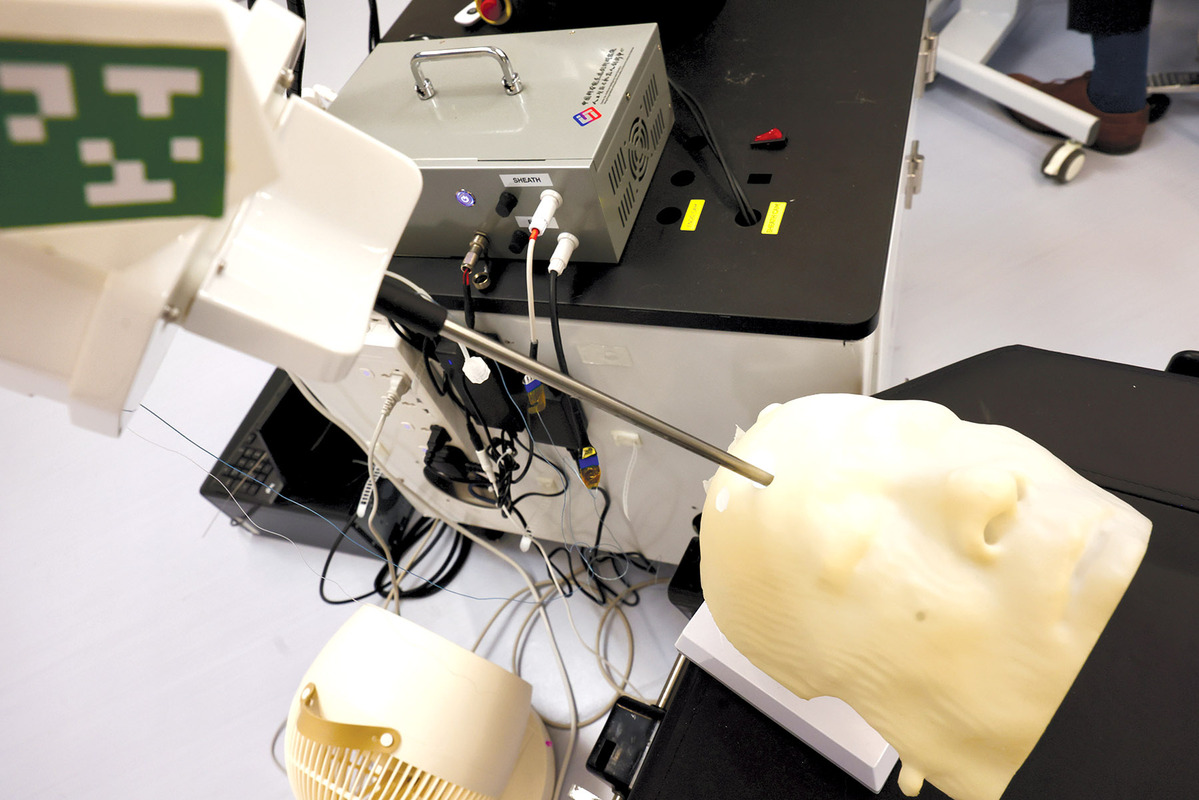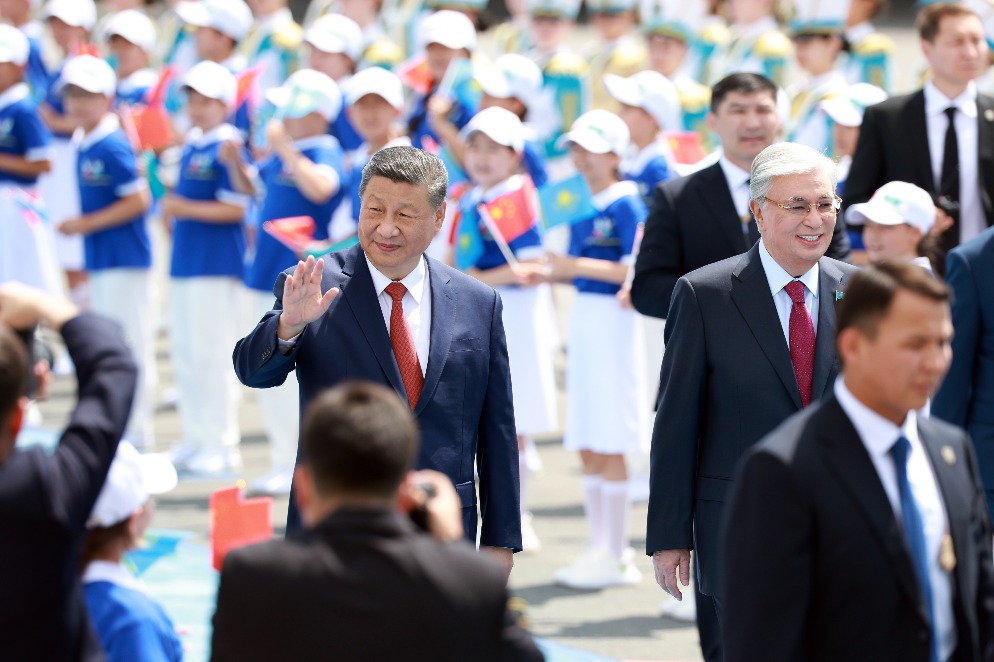Miracles in operation


Domain-specific AI
"General AI, like ChatGPT, has limited use in neurosurgery," as "we need specialized AI tools in our field," Chan says.
"While AI seems omnipotent, real-world solutions require deep vertical expertise," Liu says, adding that general AI's shortcomings — unclear logic, hallucinations and unreliable answers — make doctors hesitant to trust it in making medical decisions.
This has led to Copilot 2.0, providing cited medical evidence for all its recommendations and helping conduct surgical planning and postoperation reviews. The system is being tested at Hong Kong and mainland hospitals.
"For MRI or CT lesion detection, trained AI already surpasses clinicians in accuracy," says Liu. "But diagnosing complex, multisystem cases still requires human expertise. Until we have achieved theoretical breakthroughs, AI won't match specialists handling these challenging diagnoses."
"Neurosurgeons embrace AI as a powerful ally," Chan says. MicroNeuro's AI assistance gives them X-ray-like vision and real-time guidance, elevating operation precision.
For trainees, this technology compresses years of hands-on learning into accelerated practice with virtual mentorship. While dismissing replacement fears, Chan sees AI freeing up surgeons to focus on patients and helping to develop better systems. "Most errors that stem from human factors can be eliminated by machines. Soon, patients will trust the precision of AI-assisted surgery like they trust airline safety today."
Chan's confidence was justified. "No surgical errors or complications relating to Da Vinci Robotic Surgical Systems have been reported in the past three years, despite 1,200 to 1,500 annual cases across seven Hong Kong public hospitals utilizing the system," a government source confirmed.
Chan envisions a future in which neurosurgical robots operate with full autonomy. He points to existing autonomous technologies like Gamma Knife radiosurgery and magnetic resonance-guided focused ultrasound as proof of this inevitable evolution.
"These systems already perform precise treatments with minimal human intervention. With embodied AI, we are moving toward completely autonomous neurosurgical suites."
MicroNeuro's significance transcends offering a new approach in surgery. It enables neurosurgeons to achieve what was previously impossible — surpassing human limitations, whereas other surgical robots only enhance existing capabilities, Chan says.
The next-generation multiarmed MicroNeuro system is slated for 2027-28, promising even greater advancement.























